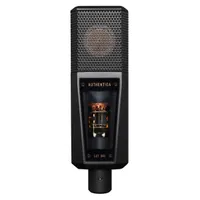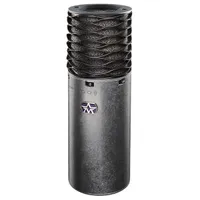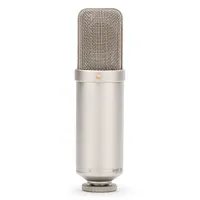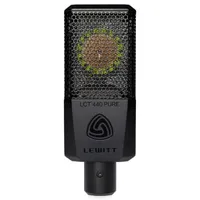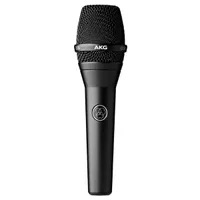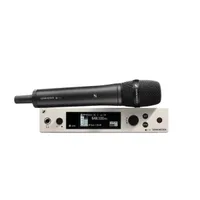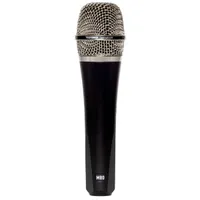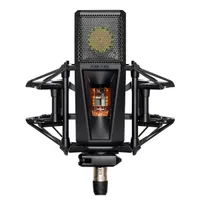Best vocal mics 2026: Our top vocal microphones for stage and studio
Add some sheen to your vocals with the best dynamic and condenser mics from Shure, AKG, Rode, Aston, Telefunken, Neumann, and more
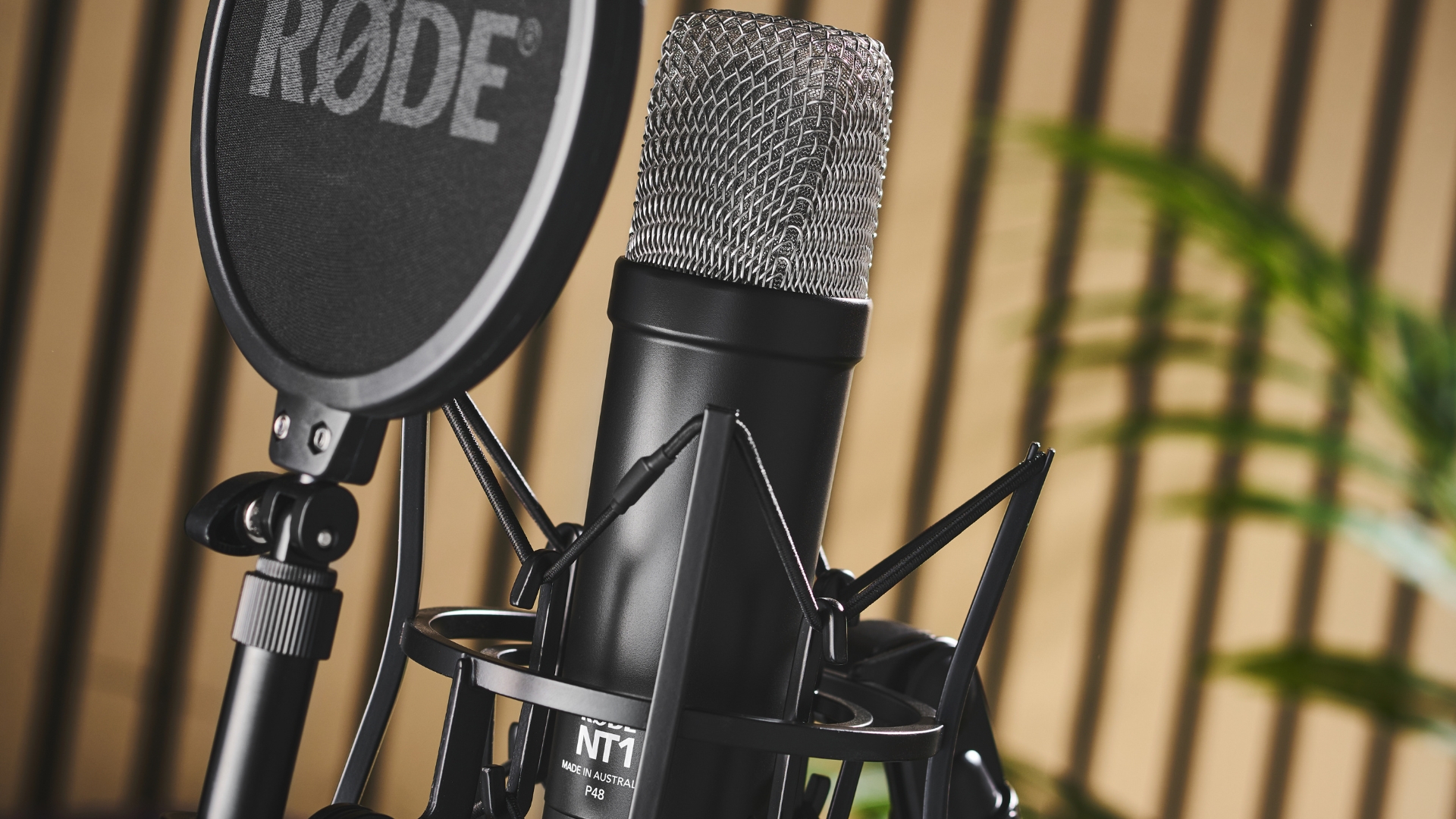
Want all the hottest music and gear news, reviews, deals, features and more, direct to your inbox? Sign up here.
You are now subscribed
Your newsletter sign-up was successful
If you ask any studio engineer they'll tell you there's no true best vocal mic for every singer. Each voice is unique, and thus will suit a different microphone depending on the timbre and qualities of that individual. Having a choice of different microphones on hand is crucial for any music creation task, and shooting them out each time you get a singer in will ensure you get a better final result.
Here at MusicRadar, we've been testing vocal microphones for over 17 years, and we're regularly using them both in home and professional recording studios. If you're working in a studio, I'd recommend a condenser microphone. For those who are performing live or in a noisy environment, dynamic microphones will be your friend. Ideally, you'll have a choice of each to pick from depending on the situation.
If you want a great all-rounder, the Shure SM7dB is a great tool to have in your arsenal, whether you're recording vocals, podcasts, or even other instruments. If you need a great vocal mic for beginners, the Rode NT1 Signature is where a lot of engineers and performers first start, and it comes with everything you need to get up and running straight away.
My top picks
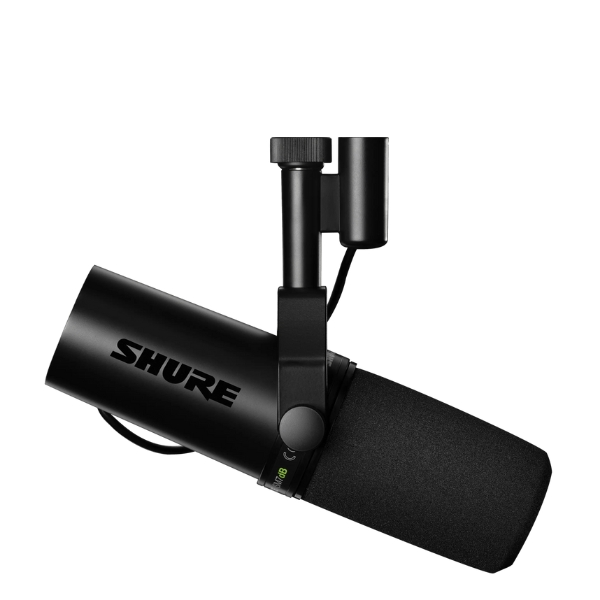
Able to play various roles from studio recording to podcasting, the updated Shure SM7dB delivers fantastic tones on any kind of vocals. The new built-in preamp delivers plenty of gain too, so no Cloudlifter required.
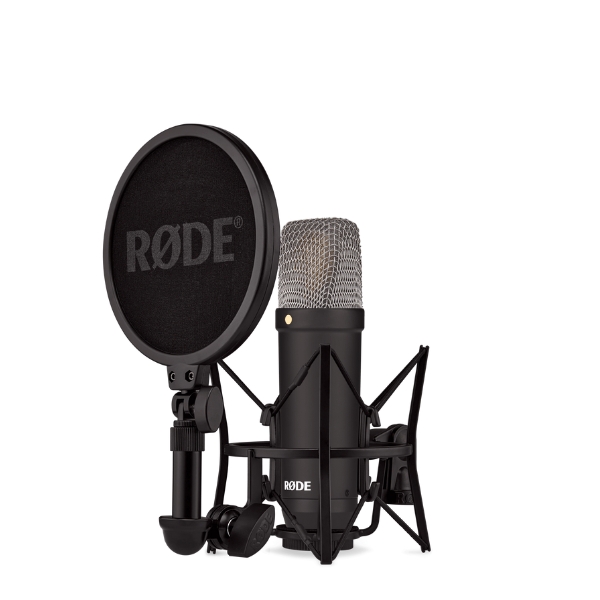
Delivering excellent quality sound and great value for money, the Rode NT1 Signature is the perfect condenser mic for beginners. It sounds phenomenal on a variety of sources, and comes with shock mount, pop filter, and even an XLR cable.
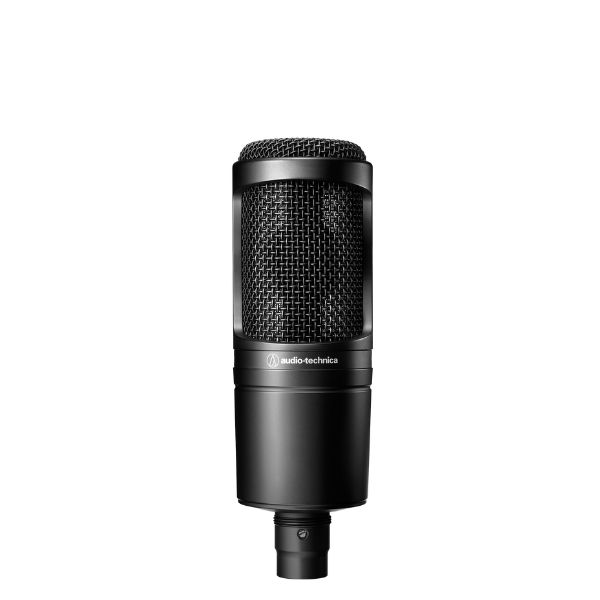
One of the best-selling condenser mics of the past few years, the Audio-Technica AT2020 is exceptional value for money. It will suit lots of different vocal styles, work on a huge range of instruments, and is robustly built, all for a great price.
Best overall
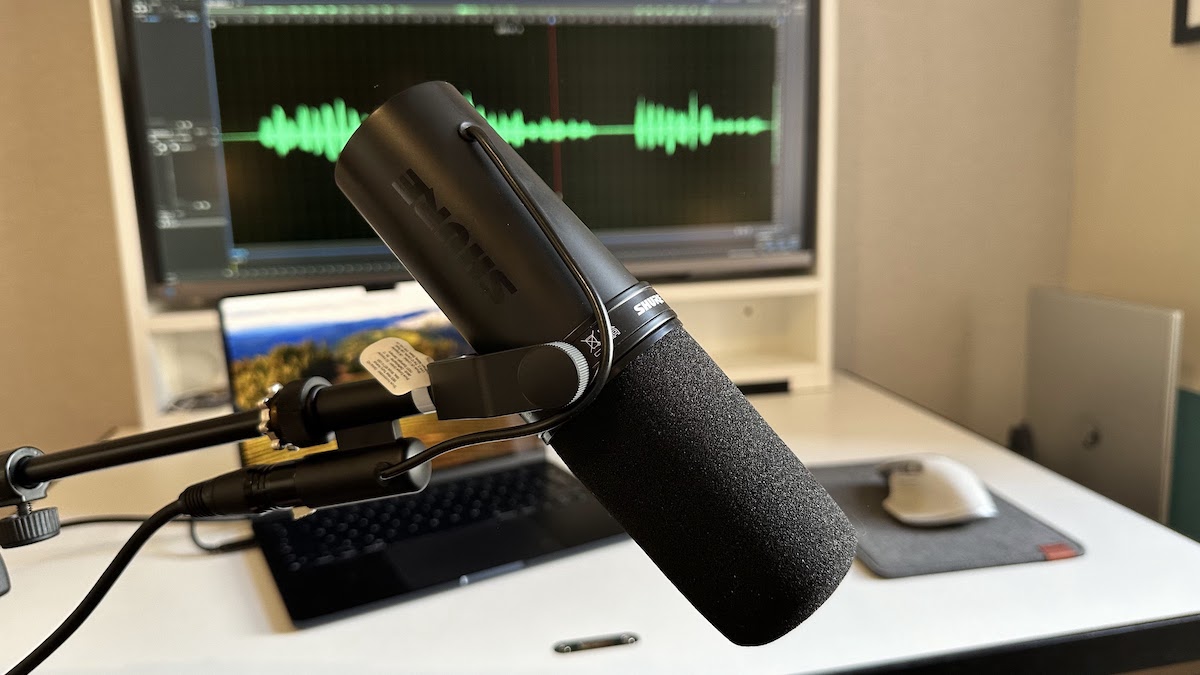
Specifications
Reasons to buy
Reasons to avoid
✅ Buy if you want a vocal mic that can do it all: The SM7dB is the latest version of the insanely popular SM7B, great whether you want a vocal mic for death growls, falsetto vocals, or to pick up someone softly spoken on a podcast.
❌ Avoid if you want a live vocal mic: The design of this mic means its applications for live performance are somewhat limited.
As an all-rounder vocal mic, the Shure SM7dB takes some beating. The previous iteration, the SM7B has been adopted by some of the music world’s biggest names – Michael Jackson swore by them – while its rich, balanced tone has found it more recently utilized as a podcasting microphone.
The headline here is it now has a built-in preamp that delivers up to 26dB of clean, transparent gain. This means you don't need to buy an additional Cloudlifter to drive it had enough for a good recorded sound, addressing the one major issue with the original.
The flat frequency response means it delivers a rich and smooth vocal with plenty of warmth and body. It's excellent at noise rejection too, only picking up whatever you place directly in front of it.
For home recording it’s a great choice as it features in-built protection against electromagnetic hum, meaning your computer monitor isn’t going to interfere with your signal. It’s also, as with all the Shure SM range, built to withstand all manner of performance situations without letting you down.

"The Shure SM7dB is a worthy successor to the SM7B, offering all the benefits of its predecessor with the added convenience of an integrated preamp. Its robust design, excellent sound isolation, and versatile features make it a top choice for professionals in various audio fields."
Read more: Shure SM7dB review
Best for beginners
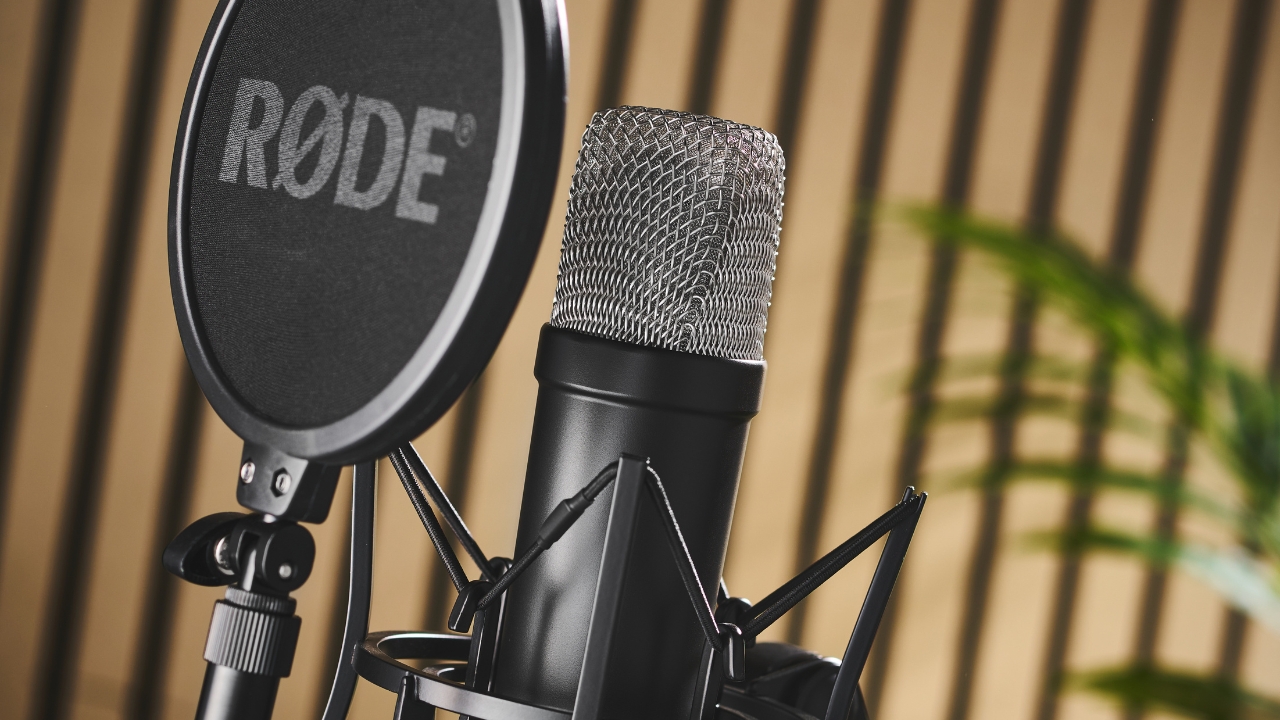
Specifications
Reasons to buy
Reasons to avoid
✅ Buy if you want your first vocal mic: Delivering an ultra-flat response and coming with all the accessories you'll need, the Rode NT1 Signature is perfect for beginners.
❌ Avoid if you need a mic for live performance: This is a condenser microphone so is ill-suited to live performance duties.
As far as first condenser microphones go, the Rode NT1 Signature Series sets the standard. It's not just a brilliant vocal microphone, you can use it on guitars, drums, and anything else too, but the fact it comes with a high-quality shock mount, pop filter, and XLR cable makes it a great choice to hit the ground running.
It's got a very flat response which is what makes it well-adapted to various vocal applications whether you're singing on a track or recording a podcast. It's flatter than the Rode NT1A too, and I much preferred the NT1 on vocals when I put them back to back.
The noise floor is ridiculously low, which means you can capture very quiet sources without incurring any extraneous noise. On the other end of the spectrum it can handle up to 142dB SPL, which makes miking loud sources like guitars and drums a breeze.
If you're just getting started recording, the Rode NT1 Signature Series gives you easy usability, plenty of accessories, plus is versatile enough to grow with you.

"Our final test was on vocals and here we believe we found the NT1’s raison d’être. Capturing a Billie Eilish-style breathy vocal we were blown away by the warmth and detail in the sound. It’s neutral, but never dull-sounding, despite being darker than the NT1A which we’ve used many times previously."
Read more: Rode NT1 Signature Series review
Best budget mic
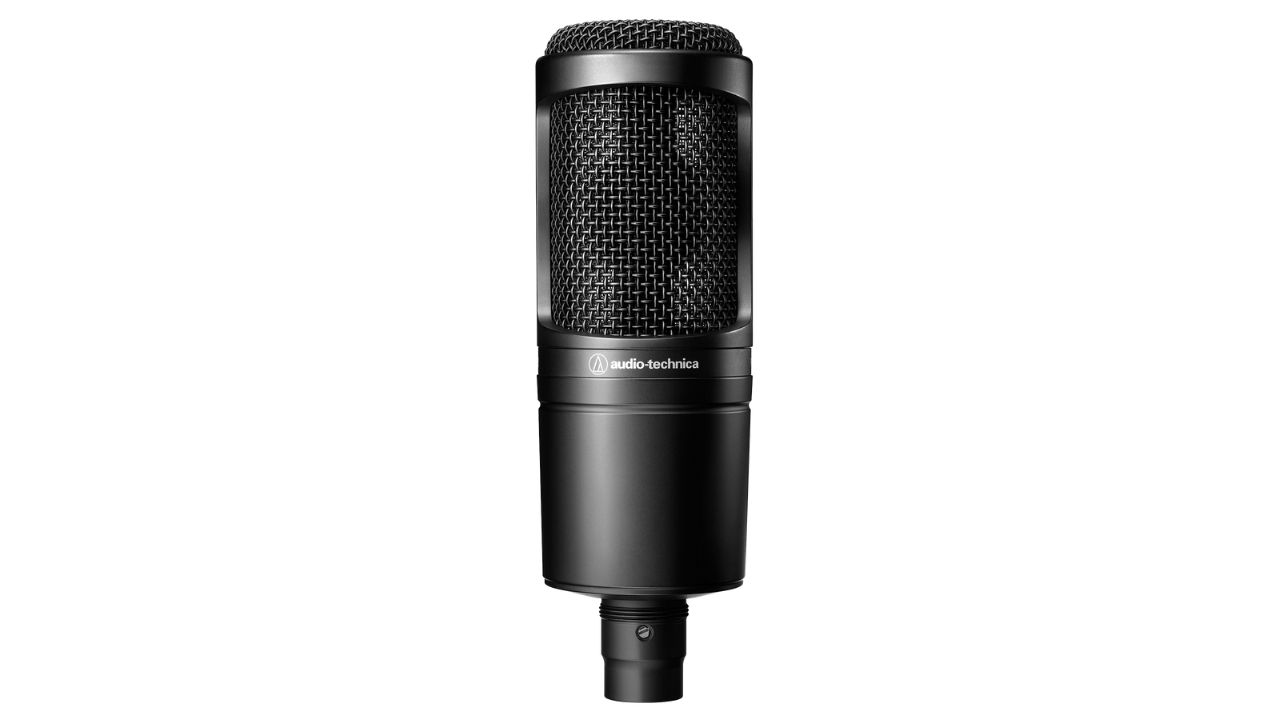
3. Audio-Technica AT2020
Our expert review:
Specifications
Reasons to buy
Reasons to avoid
✅ Buy if you want to record vocals on a budget: Coming in around the $100/£100 mark, the AT2020 is a top choice for those looking to get great vocals without splashing the cash.
❌ Avoid if you need a low-noise floor: If you're recording softly spoken vocals or podcasts we'd avoid the AT2020 as the noise floor is higher than others on this list.
The Audio-Technica AT2020 is one of the best-selling condenser microphones for good reason. Packing excellent sound quality into a robust casing, it’s a versatile workhorse mic that will deliver on vocals and plenty of other instruments.
The AT2020 is flattering to many vocalists thanks to its mid-range warmth and ever-so-slight presence peak. It captures the full bandwidth between 20 Hz and 20 kHz too, so you’ll hear every little nuance of your vocalist's delivery.
Despite the low cost, it feels incredibly robust in your hand, always a nice quality in a mic that might have to put up with abuse from life in the studio. Our only gripe with the AT2020 is that the noise floor is comparatively high, which means recording quiet sources at a distance might not work all too well.
Best for studio
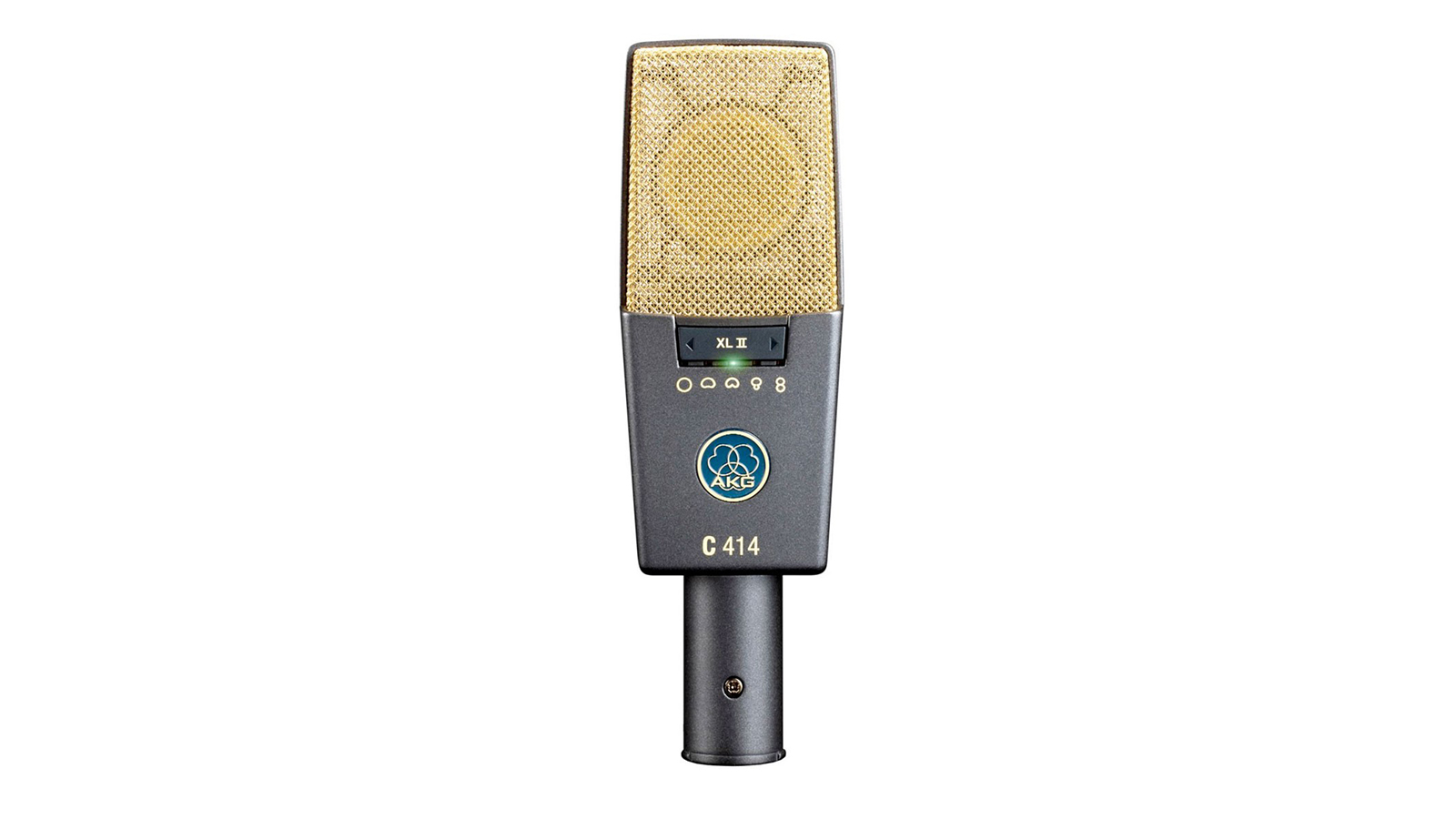
4. AKG C414 XLII
Our expert review:
Specifications
Reasons to buy
Reasons to avoid
✅ Buy if you want a pro-level vocal mic: Found in pro studios all over the world, the C414 is a professional-grade microphone for capturing pristine vocals.
❌ Avoid if you're on a budget: This microphone isn't cheap, so if your budget is tight you'll want to swerve this one.
As the most expensive mic in the line-up, the AKG C414 XLII has a lot to live up to. It’s also just about one of the most versatile microphones we’ve come across, excelling at everything from speech to vocals, via acoustic instruments and even drums.
A total of nine pickup patterns are available, including combining two different patterns, meaning there is no application where this mic won’t suit, while the overall levels of quality, durability and construction are exemplary. Oh, and it sounds incredible too.
It's not cheap, but if you want a great all-rounder that can handle any task you throw at it, this is a studio staple. Get yourself a pair and you'll be able to cover a huge amount of studio tasks far beyond vocals.
Best for live vocals
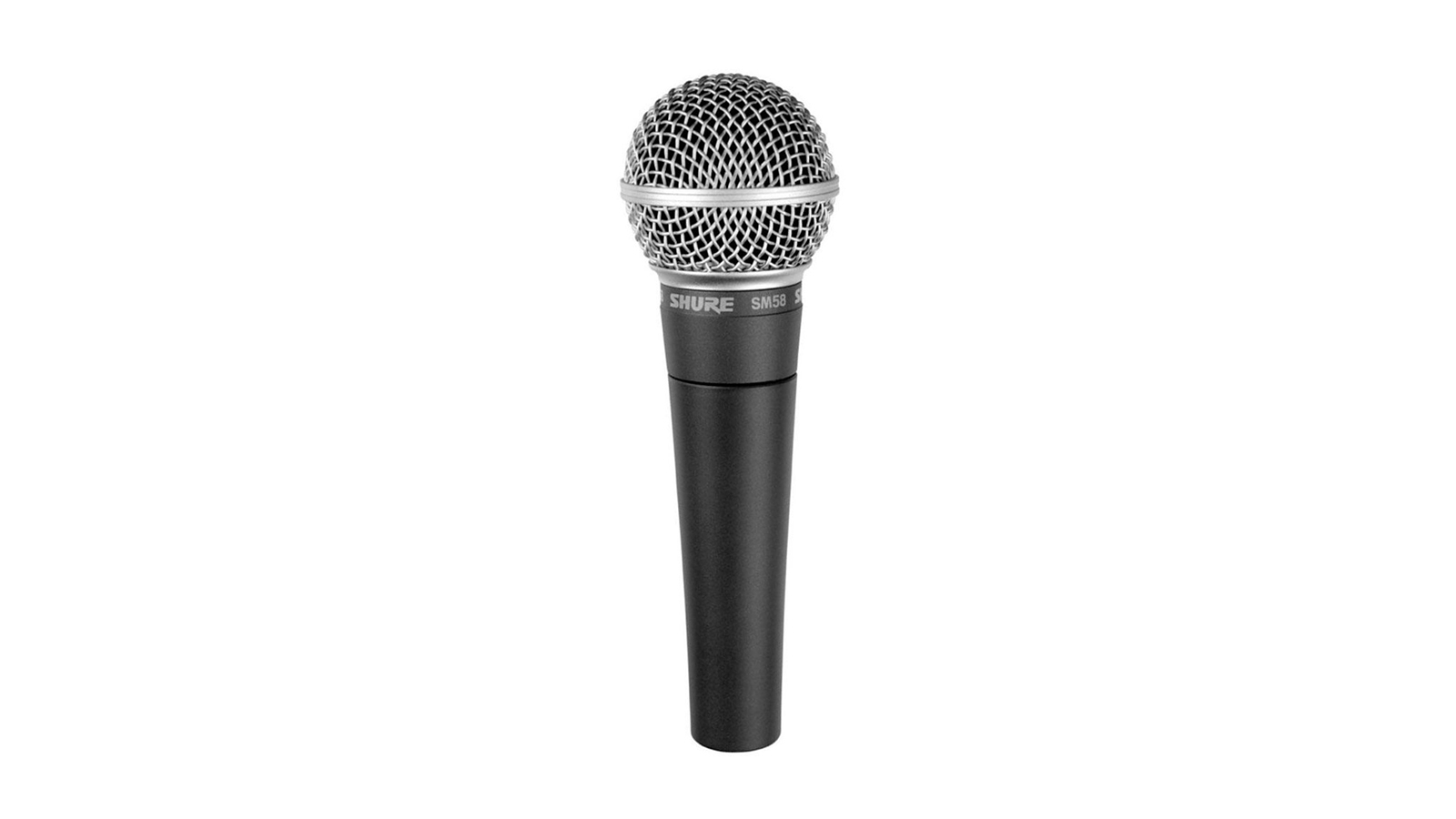
Specifications
Reasons to buy
Reasons to avoid
✅ Buy if you want a reliable live vocal mic: Regularly seen on stages throughout the world, the SM58 is the go-to for anyone needing a rugged vocal microphone.
❌ Avoid if you want studio sound: While this mic might find some use in the studio, you'll want something a little more high-definition for recording vocals.
It would be remiss not to include the Shure SM58 in this list, right? We did consider omitting it, but couldn’t bring ourselves to do it. After all, for a large number of live performers, this mic has been the go-to choice for decades now. You don’t become one of the best-selling vocal mics in the world by accident.
Widely regarded for its excellent noise rejection properties and ultra-durable build. You probably won't want to do studio vocals with this mic, but if you're on the live circuit it's a must-have in your mic locker.
As a specialist live performance mic, the Shure SM58 offers the perfect combination of reliability, performance, and durability, all for a price that sits very nicely around the $100/£100 mark.

"Fear not, however, because the real magic comes when you use the SM58, which you will, over and over and over again. Its reputation, and its place at the top table has been earned over time. Look at any review online, or speak to any seasoned user, and you’ll find the same words cropping up. Robust. Reliable. Trustworthy."
Read more: Shure SM58 review
Best compact
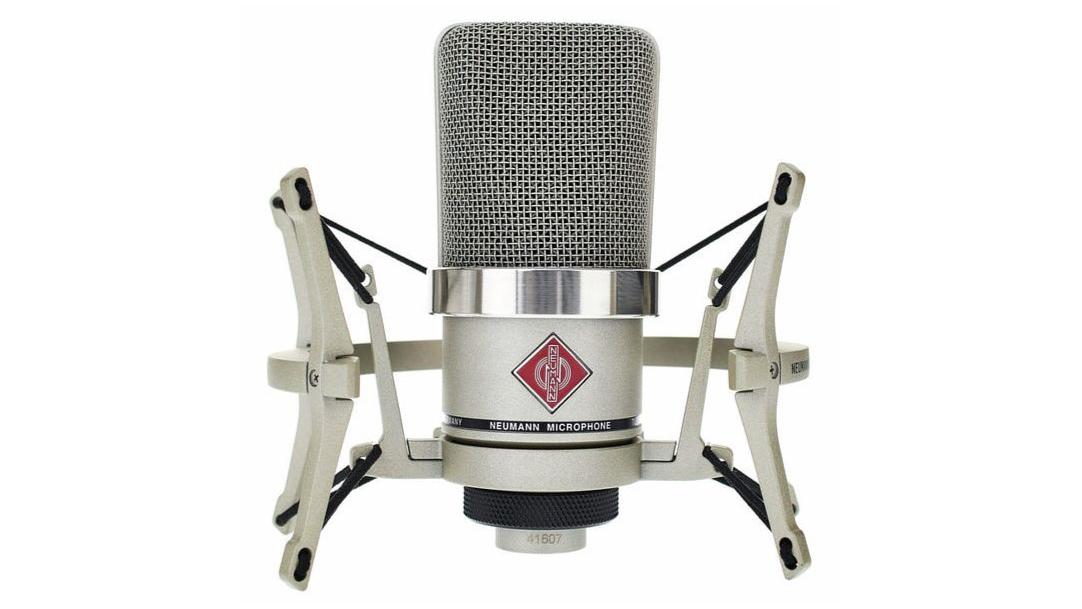
6. Neumann TLM 102
Our expert review:
Specifications
Reasons to buy
Reasons to avoid
✅ Buy if you want a compact vocal mic: The TLM102 is small enough to squeeze into a variety of spaces, making it a great partner when multi-miking sources, or if you just need something that doesn't take up much room in the studio.
❌ Avoid if you like modern features: There are no fancy features like switchable polar patterns, built-in pads, and filters here.
Neumann is a premium German mic brand, and the TLM 102 is pitched as its most inexpensive large diaphragm condenser. Frankly, it’s not cheap but it is a more affordable option for producers, musos, or vocalists working out of modest studios to buy into the famed Neumann tone.
Neumann clearly understands this market because, very sensibly, its engineers have developed the TLM 102 to be both small and versatile. So, while it’s perfect for vocals it’s also very capable of covering a lot of other ground too – everything from acoustic guitar to light percussion.
Its frequency response is authentically flat across the mid-range which gives it a transparent, open character that’s perfect for faithfully capturing vocals without adding any colour. The lower frequencies do have the kind of richness that’s expected from a large diaphragm condenser, but fortunately, it doesn't muddy up when close-miking.
If you’re happy investing the money, you’ll find the TLM 102 is a wonderful mic for vocals and a lot more besides. If you work with clients, they’ll appreciate the premium branding too.
Read our full Neumann TLM 102 review

"The TLM 102 doesn’t come with fancy tricks or tech, and there are no learning curves involved in getting the best out of it. It’s simple in all the right ways, and it will have a significant impact on the quality of your recordings. If you’re looking to invest in something special, this may just be the one for you."
Read more: Neumann TLM 102 review
Also consider
The mics above should have you covered for the vast majority of vocal recording scenarios, but if you found none of them quite fit your use case, we've reviewed plenty of other vocal microphones you can take a look at below.
Lewitt LCT 940
Condenser | Switchable pattern | XLR
We love the ability to blend the tube and FET sounds of this mic, which opens up a lot of interesting sonic possibilities whether you’re recording vocals, acoustic guitars, brass, or anything else really. Each side also stands on its own, with the tube side offering warmth and depth whilst the FET component delivers excellent clarity.
★★★★½
Aston Microphones Spirit
Condenser | Cardioid, Omni, Figure 8 | XLR
With switchable polar patterns, the Aston Microphones Spirit is a versatile, albeit expensive tool for the studio. The mid-range is smooth and there's plenty of bright top end which helps vocal recordings shine and it'll do a great job on acoustic guitars too.
★★★★½
Read more: Aston Microphones Spirit review
Rode NTK
Tube condenser | Cardioid | XLR
The Rode NTK is flattering on a variety of vocal styles, whether you're going for hip-hop bars or rock and roll belting. It sounds great close up too, sounding bigger and warmer the closer you get. If you want to use it for other applications, we found it sounds great on acoustic guitars too.
★★★★½
Lewitt LCT 440 Pure
Condenser | Cardioid | XLR
The mic’s 1” condenser is a thing of beauty, and is perfect for vocals – both sung and spoken – with a very low noise floor meaning there’s very little post-production required. It’s a premium set-up, for a very reasonable price indeed. You get an excellent selection of accessories too, with a magnetically attached pop filter, wind shield, robust shock mount, and a bag to carry everything in.
★★★★½
Read more: Lewitt LCT 440 Pure review
AKG C636
Condenser | Cardioid | XLR
The AKG C636 features a uniform cardioid pattern, designed to accentuate only what it’s meant to, while its design is geared towards reducing the vibrations caused when hand-holding the mic. Sure, music and singing situations may require a different tool, but for speech tasks, this is a great choice.
★★★★½
Sennheiser EW 500-935 G4
Dynamic | Cardioid | Wireless UHF
Sennheiser is one of the best-trusted names in wireless mics and the EW 500-935 kit is the place to start if you want to invest in a pro system that can be expanded as your requirements grow. It features an SKM 500 G4 handheld transmitter (the mic body) armed with a dynamic MMD 935-1 cardioid capsule.
★★★★☆
Telefunken M80
Dynamic | Supercardioid | XLR
the M80 is much more than just a pretty face. Despite its potential for looking like a colourful toy, Telefunken’s engineers have succeeded in their quest to give it the robustness of a solid dynamic mic but with the wider frequency response of a condenser. The holy grail of performance mic tone. They’ve achieved this by arming the M80 with a lightweight capsule that features a thin yet tough diaphragm. The resulting character is open, airy, and detailed but strident. Despite its elevated sensitivity, transients are well-tamed, and handling noise is subdued.
★★★★☆
Lewitt Pure Tube
Condenser | Cardioid | 7-pin XLR
This is not a cheap or budget microphone, but for vocalists, it could be the go-to studio workhorse you’ve been looking for. It also does a fantastic job at other vocal tasks like voice-overs thanks to its ultra-flat frequency response, leaving plenty of room for creative mixing and EQ.
★★★★½
Read more: Lewitt Pure Tube review
FAQs
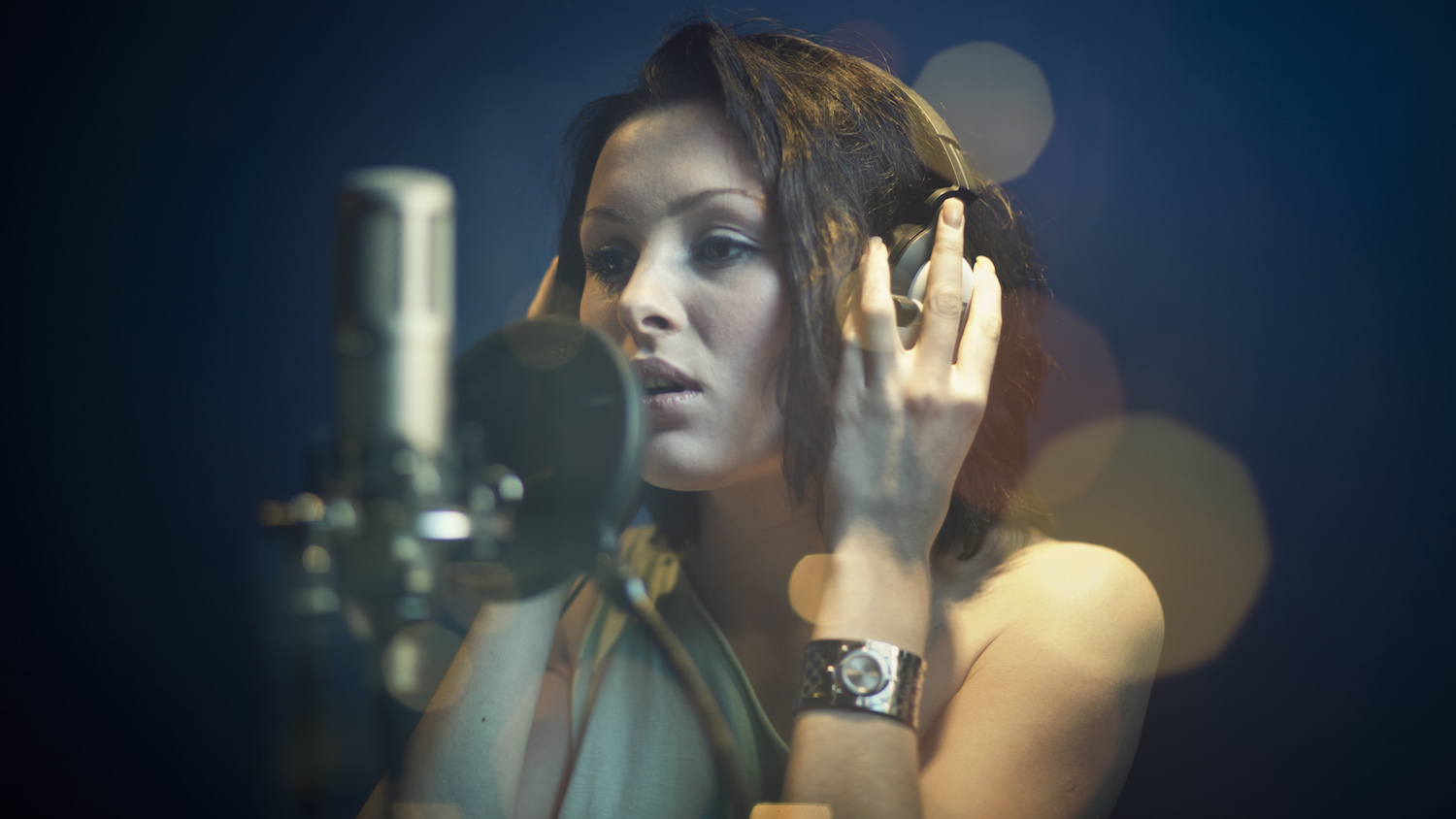
What type of microphone do I need?
When venturing into the world of vocal microphones, the first crucial consideration revolves around the context in which you intend to use them. Your microphone choice will dramatically impact the quality of your recordings or performances. Whether you're gracing a grand stage or nestled in the cosy confines of a studio, the type of microphone you select is pivotal.
For live vocal performances on a bustling stage, you should be looking for a dynamic microphone. These workhorses thrive in environments fraught with ambient noise. Their dynamic nature imparts robustness, and the microphone capsule's lower sensitivity ensures they reject unwanted noise. They also remain unfazed by some of the more common challenges of live venues, like sudden volume fluctuations or shifts in humidity.
However, if you're crafting vocal magic within a controlled, well-treated studio, the throne belongs to the large diaphragm condenser microphone. Condenser mics, equipped with active circuitry, display heightened sensitivity compared to their dynamic counterparts. This sensitivity captures the nuances of the human voice, delivering cleaner, more detailed recordings that exude audio brilliance.
Yet, in the realm of untreated home studios plagued by ambient noise and reflections, dynamic microphones offer a budget-friendly alternative, efficiently combating background noise due to their low sensitivity. While they may lack some nuances, especially in the upper-frequency range, their sound quality remains excellent, and post-recording cleanup becomes a breeze.
Dynamic microphones come into their own when recording metal vocals, thanks to their unparalleled robustness. A dropped condenser mic often meets an unfortunate demise, while a dynamic microphone scoffs at such accidents, with the floor bearing the brunt of the impact.
Which pickup pattern do I need?
But microphone choice doesn't stop at dynamic or condenser; it extends to pickup patterns, a critical factor shaping a microphone's performance. Omnidirectional microphones capture sound from all directions, ensuring uniform signal reception regardless of the singer's orientation.
In contrast, figure-8 microphones have weak side sensitivity but excel in front and rear pickup. Cardioid microphones fall in between, offering a directional focus. However, they can be unforgiving if the vocalist strays off-axis, leading to signal loss.
Selecting the right pickup pattern hinges on the recording environment. If you intend to use a specific room's acoustics, an omnidirectional microphone will faithfully capture its ambience. On a raucous stage or in a booth, the cardioid microphone shines, though beware of the proximity effect (a bass boost when the vocalist gets too close).
Omnidirectional microphones produce a fuller, more open sound, while cardioids offer more containment. They are preferable when combating sound leakage and feedback, though the latter can be a screeching nightmare if improperly handled.
Who makes the best microphones for vocals?
As you delve into microphone options, you'll encounter established brands like Shure, AKG, and Røde, with decades of music and broadcasting history backing their quality. However, newer contenders such as Aston and Lewitt also offer stellar alternatives. Your choice should align with your specific needs and the sonic world you aim to create.
How we test
Here at MusicRadar, we are experts in our field, with many years of playing, creating and product testing between us. We live and breathe everything music gear related, and we draw on this knowledge and experience of using products in live, recording and rehearsal scenarios when selecting the products for our guides.
When choosing what we believe to be the best vocal mics available right now, we combine our hands-on experience, user reviews and testimonies and engage in lengthy discussions with our editorial colleagues to reach a consensus about the top products in any given category.
First and foremost, we are musicians, and we want other players to find the right product for them. So we take into careful consideration everything from budget to feature set, ease of use and durability to come up with a list of what we can safely say are the best vocal mics on the market right now.
Find out more about how we test music gear and services at MusicRadar
Latest updates
26/01/26: The guide has been refreshed with a new intro and a header image. Each entry that features a review has also had review block added with a quote for more insight into the product.
Related buyer's guides
MusicRadar's got your back
- The best microphones for recording instruments, podcasts and more
- Check out the best budget USB microphone
- Hold your microphone steadfast with the best mic stands
- On a budget? Check out the best cheap microphones
Want all the hottest music and gear news, reviews, deals, features and more, direct to your inbox? Sign up here.
Chris Corfield is a journalist with over 12 years of experience writing for some of the music world's biggest brands including Orange Amplification, MusicRadar, Guitar World, Total Guitar and Dawsons Music. Chris loves getting nerdy about everything from guitar and bass gear, to synths, microphones, DJ gear and music production hardware.
- Simon Fellows
- Matt McCrackenJunior Deals Writer
